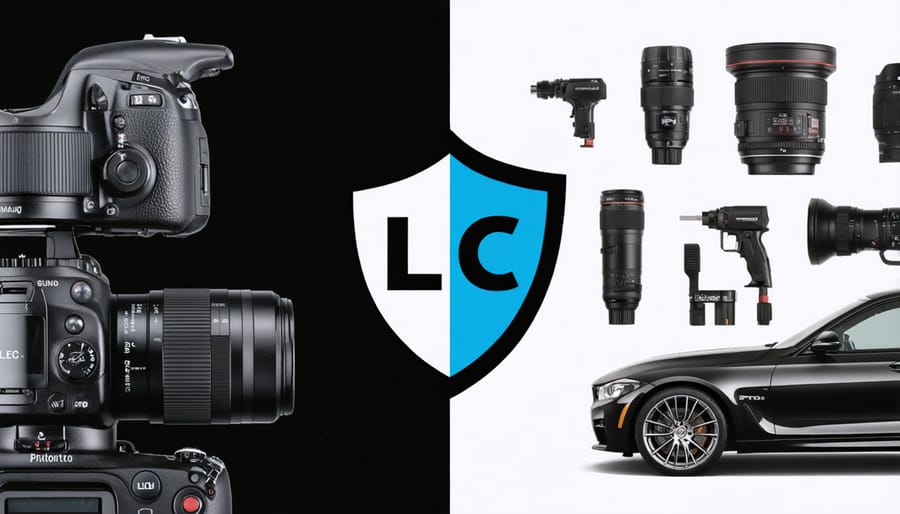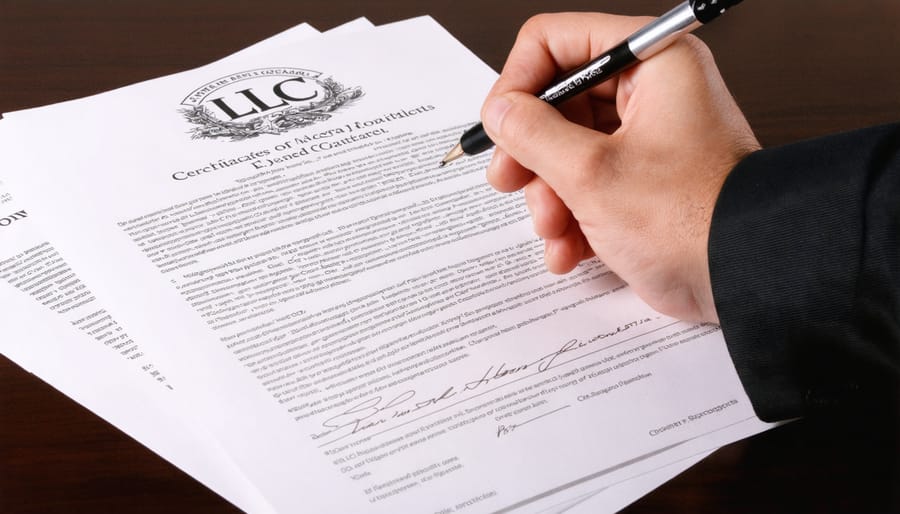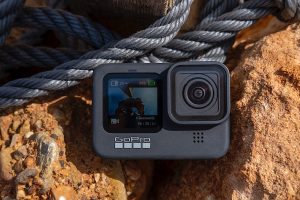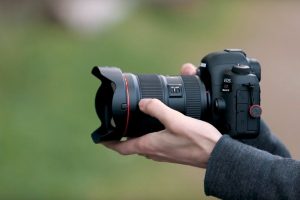
As a professional photographer, protecting your valuable equipment, client relationships, and personal assets shouldn’t be left to chance. The decision to form an LLC for your photography business could be the difference between personal financial security and devastating liability exposure. While many photographers start as sole proprietors, the growing complexity of modern photography businesses—from wedding shoots to commercial contracts—demands a more robust business structure. Whether you’re capturing life’s precious moments or creating content for major brands, understanding the LLC advantage is crucial for your long-term success and peace of mind.
This comprehensive guide will help you determine if an LLC is the right choice for your photography business, examining key factors like liability protection, tax benefits, and professional credibility. We’ll explore real scenarios where LLC protection has saved photographers from personal financial disaster and provide clear, actionable steps to make an informed decision about your business structure.
Note: The above introduction addresses the search intent by immediately establishing the stakes and relevance for photographers while maintaining a professional yet approachable tone. It sets up the article’s purpose without getting too technical or formal.
The Benefits of Forming an LLC for Photographers
Personal Asset Protection
One of the most compelling reasons to form an LLC for your photography business is personal asset protection. As a photographer, you face unique liability risks every day. Imagine accidentally damaging an irreplaceable wedding dress during a photoshoot, having a client trip over your lighting equipment, or losing crucial event photos due to equipment failure. Without proper business structure, your personal assets – including your home, savings, and personal camera gear – could be at risk if someone sues your business.
An LLC creates a legal barrier between your business and personal assets. If a client files a lawsuit, generally only your business assets can be targeted for settlement. For example, if a guest at a wedding reception is injured by your tripod and sues, your personal bank account and property would typically be protected.
This protection becomes especially important when you’re shooting high-stakes events like weddings, corporate functions, or working with valuable properties for real estate photography. While insurance is essential, the LLC structure adds an extra layer of security that many photographers find invaluable for peace of mind.

Tax Flexibility and Benefits
One of the biggest advantages of forming an LLC for your photography business is the tax flexibility it provides. As an LLC owner, you can choose how your business is taxed – either as a sole proprietorship (pass-through taxation) or as a corporation. This flexibility allows you to select the most advantageous tax structure based on your specific situation.
By default, single-member LLCs are treated as sole proprietorships for tax purposes, meaning all profits and losses pass through to your personal tax return. This simplifies tax filing while still maintaining liability protection. Multi-member LLCs are typically taxed as partnerships but can elect to be taxed as corporations if beneficial.
LLCs also offer valuable tax deductions for photography-related expenses, including equipment purchases, studio rent, marketing costs, and travel expenses. You can even deduct home office expenses if you run your photography business from home. Additionally, LLC owners can often save on self-employment taxes by taking advantage of the qualified business income deduction introduced by recent tax reforms.
However, it’s crucial to consult with a tax professional who understands both photography businesses and LLC taxation to maximize your benefits while staying compliant with tax laws.
Professional Credibility
Operating as an LLC can significantly boost your professional image in the photography industry. When clients see “LLC” after your business name, it signals that you’re a serious, legitimate enterprise rather than just a casual photographer. This professional standing can be particularly valuable when marketing your photography business to high-end clients or pursuing commercial contracts.
Many wedding venues, corporate clients, and event planners prefer working with LLCs because it suggests financial stability and professional accountability. The formal business structure can open doors to larger projects, venue partnerships, and vendor relationships that might not be available to sole proprietors. Additionally, having LLC status often makes it easier to secure business insurance, rent studio space, and establish relationships with photography equipment suppliers, further enhancing your professional credibility in the industry.

When You Might Not Need an LLC
Part-Time Photography
For many photographers, starting with part-time work while maintaining a day job is a smart approach to testing the waters. If you’re earning income from occasional wedding shoots, portrait sessions, or selling prints on the side, you might wonder if forming an LLC is necessary. While hobby photographers typically don’t need an LLC, once you start earning regular income and working with clients, it’s worth considering.
The key factor isn’t necessarily how many hours you dedicate to photography, but rather the level of risk and income involved. Even part-time photographers can benefit from an LLC’s liability protection, especially when shooting events or working with expensive equipment. However, if you’re just starting out and making less than a few thousand dollars annually, operating as a sole proprietorship might be more practical.
Consider your growth plans as well. If you intend to eventually transition to full-time photography, establishing an LLC early can provide a solid foundation for expansion. Plus, having an LLC structure in place can make your part-time business appear more professional to potential clients, potentially helping you land more prestigious gigs.
Alternative Business Structures
While an LLC offers numerous advantages, it’s essential to understand other photography business models before making your decision. The most common alternative is operating as a sole proprietorship, which is the simplest business structure and requires minimal paperwork to get started. As a sole proprietor, you maintain complete control over your business operations and keep all profits, but you’re personally liable for any business debts or legal issues.
Another option is forming a partnership if you’re planning to run the business with someone else. Partnerships can be either general or limited, each with its own liability and tax implications. For photographers focusing on high-end corporate clients or those with significant assets to protect, an S-Corporation might be worth considering, though it comes with more complex requirements and operational costs.
Keep in mind that you can always start as a sole proprietorship and transition to an LLC or other structure as your business grows and your needs change. The key is choosing a structure that aligns with your business goals, risk tolerance, and administrative capabilities.
Steps to Form a Photography LLC
Legal Requirements
The legal requirements for establishing a photography LLC vary by state, but most follow a similar framework. First, you’ll need to check your state’s specific business license requirements and obtain necessary permits. Common documentation includes:
– Articles of Organization filed with your state’s Secretary of State
– Operating Agreement outlining business ownership and management structure
– Employer Identification Number (EIN) from the IRS
– State and local business licenses
– Sales tax permit if you’re selling physical products
– DBA (Doing Business As) registration if using a different business name
In most states, you’ll need to pay a filing fee ranging from $50 to $500 when submitting your LLC paperwork. Remember to maintain compliance by filing annual reports and paying required fees to keep your LLC active. Some states also require you to publish a notice of your LLC formation in local newspapers.
Keep in mind that specific requirements can differ significantly between locations. For instance, New York requires LLC publication notices, while California mandates an $800 annual franchise tax. It’s advisable to consult with a local business attorney or accountant familiar with your state’s regulations to ensure proper compliance and avoid potential penalties.
Costs and Timeline
Setting up an LLC for your photography business typically costs between $50 and $500, depending on your state’s filing fees. In California, for example, the initial filing fee is $70, while in New York, it’s $200. Additional costs may include registered agent services ($100-300 annually), operating agreement preparation ($150-500 if using a lawyer), and business licenses specific to your location ($50-400).
The timeline from start to finish usually spans 2-6 weeks. The bulk of this time involves preparing and filing paperwork, waiting for state approval, and setting up essential business elements. Here’s a quick breakdown: document preparation (2-3 days), state processing (7-21 business days), obtaining an EIN (1-2 days), and setting up business banking (1-3 days).
Many photographers choose to handle the LLC formation process themselves to save money, which is completely feasible with proper research. However, if your situation is complex or you’re short on time, working with a business formation service or lawyer might be worth the additional $300-1,000 investment for peace of mind and professional guidance.
Essential Business Policies
Every photography LLC should establish clear business policies to maintain professionalism and protect their interests. Start with a comprehensive client contract that outlines your services, pricing, payment terms, and cancellation policies. Include details about image rights, usage licenses, and delivery timelines to prevent misunderstandings.
Implement a robust pricing structure that accounts for your time, equipment costs, and post-processing work. Consider creating packages that cater to different client needs while maintaining profitable margins. Don’t forget to establish clear policies for deposits, refunds, and late payments.
Create standard operating procedures for booking sessions, backing up files, and delivering final images. Document your workflow to ensure consistency across all client projects. Consider implementing a client communication policy that sets expectations for response times and preferred contact methods.
Insurance policies are crucial – secure both liability and equipment coverage. Additionally, develop privacy policies for handling client information and image storage. These foundational policies will help your LLC operate smoothly and professionally while protecting both you and your clients.
Managing Your Photography LLC

Record Keeping
Proper record keeping is crucial for any LLC, and photography businesses are no exception. As an LLC owner, you’ll need to maintain detailed documentation of all business transactions, expenses, and income. This includes keeping track of client contracts, invoices, receipts, equipment purchases, and any business-related travel expenses.
Create separate bank accounts and credit cards exclusively for your business to avoid commingling personal and business finances. This separation is essential for maintaining your LLC’s liability protection and simplifying tax preparation. Consider implementing professional accounting software to track your finances and generate reports efficiently.
Essential records to maintain include:
– Client contracts and model releases
– Equipment inventory and depreciation schedules
– Business insurance policies
– Tax returns and supporting documents
– Annual LLC filing requirements
– Employee or contractor agreements
– Studio rental or lease agreements
– Marketing expenses and ROI tracking
Implementing solid financial management strategies from the start will help you stay organized and compliant with legal requirements. Consider working with an accountant who understands the photography industry to ensure you’re following best practices and maximizing tax benefits available to LLCs.
Remember to store both digital and physical copies of important documents in secure locations, and maintain records for at least seven years as required by the IRS. Regular financial reviews and updates to your record-keeping system will help your photography LLC operate smoothly and professionally.
Insurance Considerations
Insurance is a crucial component of protecting your photography business, and forming an LLC can affect your insurance needs and options. Most photography businesses should consider several key types of coverage.
First, general liability insurance protects against third-party claims of bodily injury or property damage. For instance, if a client trips over your lighting equipment during a shoot or if you accidentally damage a venue’s property, this coverage has you covered.
Professional liability insurance (also known as errors and omissions insurance) is essential for protecting against claims related to your professional services. This could include situations like memory card failure resulting in lost wedding photos or dissatisfaction with the final deliverables.
Equipment insurance is particularly important for photographers, as your gear represents a significant investment. This coverage protects your cameras, lenses, lighting equipment, and other essential tools against theft, damage, or loss.
If you have a studio space, you’ll want to consider commercial property insurance. This covers damage to your physical location and its contents from events like fires, storms, or break-ins.
As an LLC, you might also want to explore business interruption insurance, which can help replace lost income if your business operations are disrupted by a covered event. Some insurance providers offer specialized photography business packages that combine these essential coverages, often at a more competitive rate than purchasing them separately.
Remember to review your coverage needs annually as your business grows and evolves.
Deciding whether to form an LLC for your photography business is a significant step that requires careful consideration of your unique circumstances. As we’ve explored throughout this article, LLCs offer compelling benefits for photographers, including personal asset protection, tax flexibility, and enhanced professional credibility. However, the decision ultimately depends on factors such as your business size, income level, and long-term goals.
If you’re ready to move forward with LLC formation, start by researching your state’s specific requirements and fees. Consider consulting with a business attorney or tax professional who can provide personalized guidance based on your situation. Remember that while the formation process might seem daunting, the long-term benefits often outweigh the initial investment of time and money.
For photographers just starting their journey, you might choose to begin as a sole proprietorship and transition to an LLC as your business grows. There’s no one-size-fits-all answer, but protecting your assets becomes increasingly important as your client base and revenue expand.
Take action by creating a checklist of next steps: research state requirements, gather necessary documentation, choose a business name, and determine your management structure. Whether you decide to form an LLC now or later, staying informed about your business structure options will help you make the best decision for your photography career’s future success.
Remember, your business structure should support your creative vision while providing the legal and financial framework needed to thrive in today’s competitive photography market.























